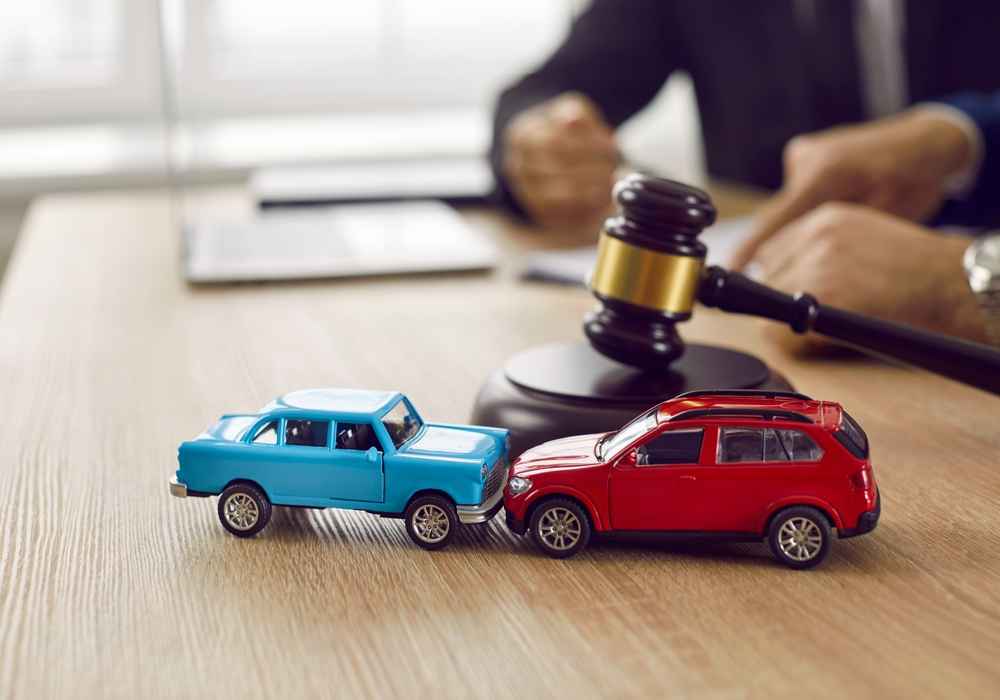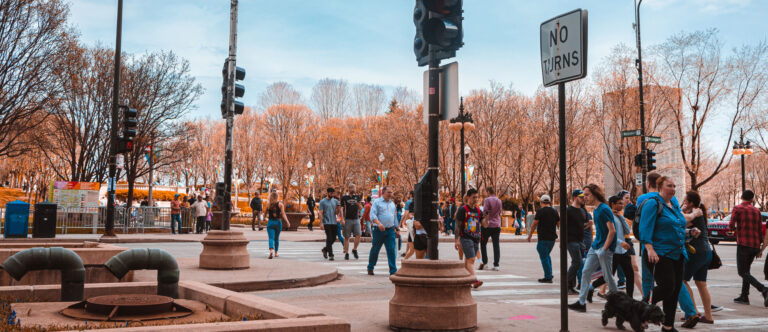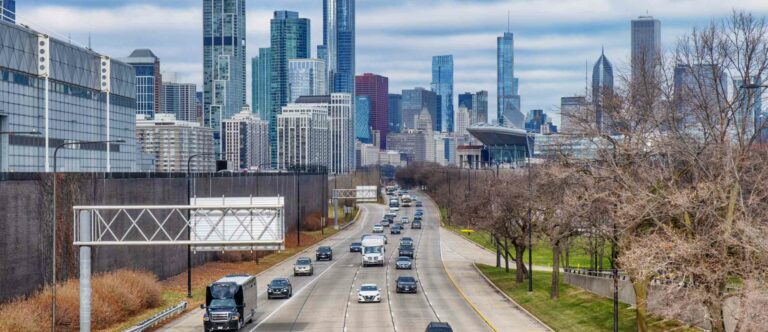A car accident in Chicago can leave you with pain, a damaged vehicle, and a long list of questions. If you’re searching for help, you’re likely asking yourself: what can a lawyer do for you after a Chicago car accident?
The answer isn’t simple, but it can change how you recover, protect your rights, and confidently move forward.
Let’s take a look at how a lawyer helps after a crash, what they handle, and why timing matters more than most people realize.
How Does a Lawyer Handle the Insurance Companies for Me?
A lawyer takes the stress out of dealing with insurance companies. Right after a crash, insurers may call, ask for statements, or offer a fast settlement. These early conversations can affect your case. Having someone speak for you helps prevent costly mistakes.
Your lawyer handles communication with:
- Your insurance company
- The other driver’s insurer
- Adjusters asking for statements or documents
They review all offers and protect you from tactics that reduce your payout. Without this support, it’s easy to accept too little or say the wrong thing.
Review Every Loss—Not Just Your Bills
Many people think a car accident claim only covers doctor visits and repairs. That’s just part of the picture. A lawyer looks at everything you’ve lost—not just what you’ve paid so far.
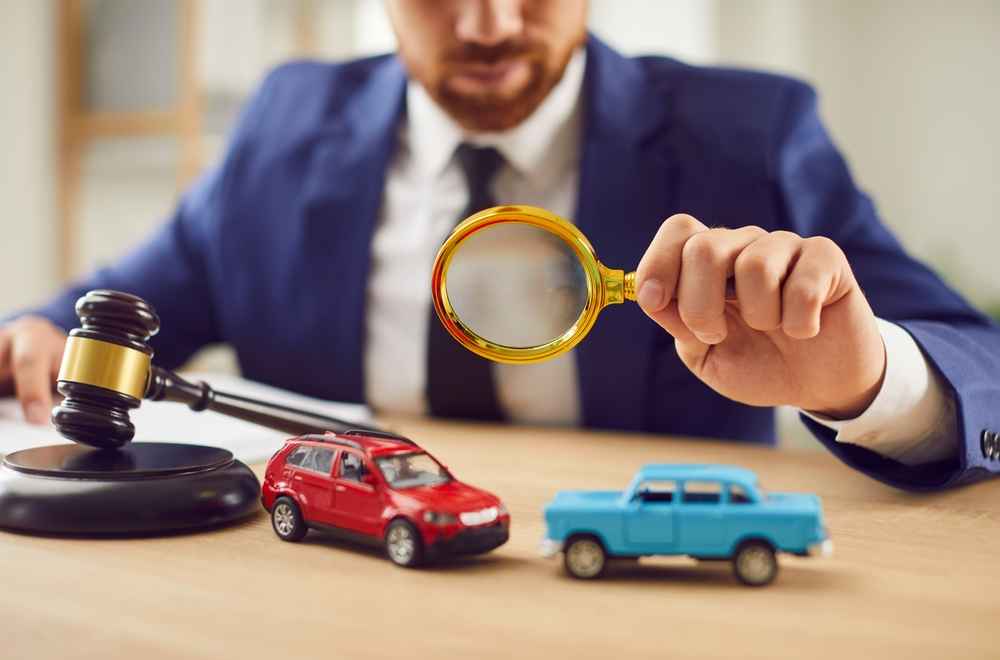
This includes:
- Emergency and ongoing medical treatment
- Time missed from work or job loss
- Pain or reduced movement in your daily routine
- Help at home if you can’t drive, cook, or care for children
- Emotional strain or sleep trouble
They total your full losses so you can request fair compensation. If you settle before knowing what your case is worth, you can’t go back and ask for more.
How Will My Lawyer Investigate and Preserve Critical Evidence?
Accident scenes change fast. Skid marks fade. Damaged vehicles are repaired or towed. Witnesses forget what they saw. A lawyer starts working right away to gather and preserve key evidence.
This includes:
- Police reports and 911 call records
- Photos of the scene and vehicles
- Surveillance or dashcam footage
- Witness statements and contact info
- Driving records and cell phone logs
They also may bring in professionals to examine the scene, explain injuries, or analyze crash data.
Common sources of helpful evidence:
- Crash Reports
Chicago police reports usually list basic facts and the officer’s opinion on fault. - Video Footage
Red light cameras or business security footage can show how the crash happened. - Witness Testimony
People nearby may confirm what lights were showing, how fast cars were going, or who was turning.
Handle Delays and Denials from the Insurance Company
Insurance companies may delay claims, deny valid ones, or argue over fault. They might say you waited too long to seek treatment or claim your injuries aren’t serious. This happens even when evidence proves otherwise.
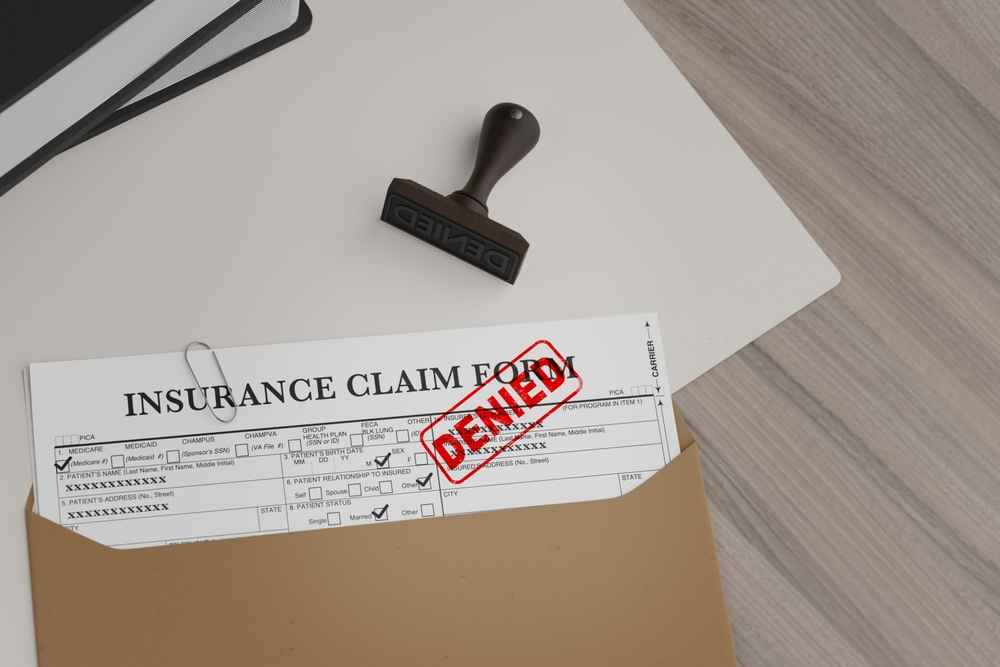
Your lawyer pushes back against:
- Claims that you were at fault
- Arguments that your injuries aren’t related
- Low offers that don’t cover your losses
- Delays in approving payments or repairs
They gather the proof needed to challenge the insurance company and keep your claim on track.
What is Comparative Negligence in Illinois and How Can a Lawyer Help?
Illinois uses a rule called comparative negligence. This means fault can be shared. If you’re less than 51% responsible, you can still receive compensation. Your lawyer builds your case to show why the other driver holds most—or all—of the fault.
Without help, you might get blamed for more than you should.
Prepare Your Case for Trial if Needed
Most car accident claims settle before going to court. But some do not. If the insurance company won’t make a fair offer, a lawyer prepares your case for trial.
They:
- Draft legal documents and court filings
- Interview and prepare witnesses
- Bring in crash reconstruction professionals
- Build timelines, visual aids, and medical summaries
- Represent you in court proceedings
You don’t need to figure out court rules or deadlines on your own. Your lawyer takes care of it while keeping you informed at each step.
Protect You from Mistakes That Could Hurt Your Case
Small errors can reduce the strength of your claim. Lawyers help you avoid missteps that insurers may use against you.
Common problems lawyers help prevent:
- Missing legal deadlines
- Accepting a low settlement too early
- Posting about the crash on social media
- Giving a recorded statement without preparation
- Failing to follow up on medical treatment
You won’t need to second-guess every decision when someone experienced walks you through it.
Support Your Claim with Real-Life Evidence
Written records help show how a crash affected your life. A lawyer may ask you to keep a daily journal or gather proof of your routine.
Examples include:
- Missed birthdays, vacations, or family events
- Notes from friends or relatives who help with tasks
- Journal entries about pain, mobility, or stress
These personal notes make your claim stronger and more human in the eyes of an adjuster or jury.
Handle Claims for Passengers, Pedestrians, and More
Lawyers don’t just represent drivers. You may still have a valid claim if you were a passenger, pedestrian, cyclist, or rideshare user. A lawyer helps identify who’s responsible and how to move forward.
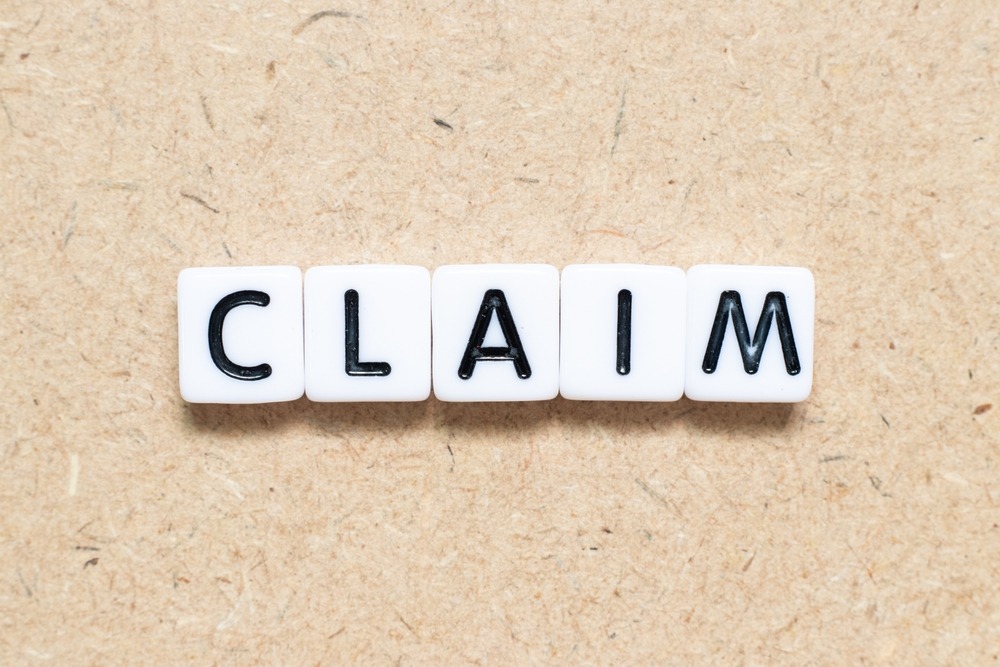
They look at:
- Who was driving
- Whether more than one driver was at fault
- Whether work-related or rideshare insurance applies
You don’t have to figure out liability on your own.
Help When the Other Driver Was Working
If the other driver was on the job, their employer might be responsible, too, which can open up more insurance coverage. A lawyer investigates whether the driver was delivering packages, using a company car, or driving for a service like Uber.
If so, the claim may include:
- Business insurance
- Employer liability
- Commercial vehicle policies
These claims are more complex and more challenging to file without help.
Give You Time to Focus on Healing
After a crash, your job is to rest and recover. A lawyer takes on the burden of paperwork, deadlines, and phone calls. You’ll still be involved in decisions, but you won’t have to manage the process alone.
This means:
- Fewer calls from insurers
- No pressure to sign forms without review
- More time to attend doctor visits or physical therapy
- Peace of mind that your case is moving forward
You can spend your energy where it’s needed most.
Can You Change Lawyers Mid-Case if You’re Not Happy?
You don’t have to stay with a lawyer who isn’t meeting your needs. If you feel ignored, confused, or pressured to settle too early, it may be time to consider a change.
Switching lawyers is more common than you think, especially in injury cases that stretch over many months. Illinois law allows you to change lawyers at any point in the case.
You don’t need permission from your current lawyer. You also don’t need to explain your reasons. Your new lawyer handles the transition, including notifying the current attorney and requesting all files.
Three signs it might be time to switch:
- You rarely hear from your lawyer and don’t get updates unless you ask.
- Your questions are met with frustration or unclear answers.
- You feel rushed to settle before your treatment is finished.
Changing lawyers does not reset your case or force you to start over. The new lawyer picks up where the old one left off. They may even catch issues the first attorney missed. If both lawyers worked on the case, the law firm fee is shared—they are not added on top of each other.
If you’re thinking about switching but feel unsure, a consultation with a new lawyer can help. You’ll get a second opinion and a better sense of your options. What matters most is your confidence in who’s handling your case.
Frequently Asked Questions
1. What should I do if I think the police officer made a mistake in the crash report?
You can request a correction or submit your own statement to be added to the report. Your lawyer can help gather evidence that shows your side of the story. This might include photos, video, or witness statements.
2. Can I talk to the insurance company if I haven’t hired a lawyer yet?
Yes, but be careful. Anything you say can be used to reduce your claim. If you’re unsure what to say—or feel pressured—it’s okay to delay the conversation and let them know you’re seeking legal advice.
3. Do I still have a case if I didn’t go to the hospital immediately?
You might. Some injuries don’t show up until hours or days later. It’s important to get medical care as soon as you notice symptoms. Your lawyer can help connect the timing of your pain to the crash using your records.
4. Will the other driver know how much money I’m requesting?
Not right away. Most of the time, settlement discussions happen between your lawyer and the insurance company. If a lawsuit is filed, some parts of your claim become public, but the other driver usually doesn’t see the full demand unless the case goes to trial.
5. What if I was driving without insurance at the time of the crash?
You can still file a claim for your injuries if the other driver was at fault. However, Illinois law may limit what you can recover, and not having insurance may affect parts of your case. A lawyer can explain how this applies to your situation.
6. Can I still file a claim if I was driving someone else’s car?
Yes. You don’t need to own the vehicle to file a personal injury claim. What matters is that you were injured because of someone else’s actions. The vehicle owner’s insurance may apply, and you may also be covered under your own policy if you have one.
7. What happens if I already started the insurance claim without a lawyer?
You can still bring in a lawyer later. They’ll review what’s been said and submitted so far and step in to guide the next steps. If you signed anything or gave a recorded statement, they’ll work to limit any harm to your case.
8. Will I need to go to court if I hire a lawyer?
Not necessarily. Most car accident cases settle out of court. Your lawyer will try to reach a fair agreement without filing a lawsuit. If the insurance company refuses to settle, then court may be the next step—but it’s not automatic.
9. Can I get compensation if my car was totaled but I wasn’t hurt?
Yes. A lawyer can help you recover the fair market value of your vehicle and other costs tied to the crash, such as a rental car or lost personal items. Even if you weren’t physically injured, financial losses may still be part of your claim.
10. What if I was visiting Chicago from another state when the crash happened?
You can still file a claim in Illinois. The location of the accident—not your home state—determines where the claim is handled. A local lawyer can guide you through the process even if you’ve already returned home.
11. How long do I have to file a car accident lawsuit in Illinois?
In Illinois, the statute of limitations for a personal injury claim is generally two years from the accident date. For a property damage claim (for your vehicle), the deadline is typically five years.
If you miss these deadlines, you will likely lose your right to seek compensation forever. It is crucial to speak with a lawyer long before this deadline to preserve your rights.
12. What happens if the driver who hit me has no insurance?
If the at-fault driver is uninsured, you may still recover compensation through your own insurance policy, provided you have Uninsured Motorist (UM) coverage. This is a mandatory part of all Illinois auto insurance policies unless you have specifically rejected it in writing.
A lawyer can help you file a UM claim with your own insurer and negotiate a fair settlement.
13. What is a contingency fee?
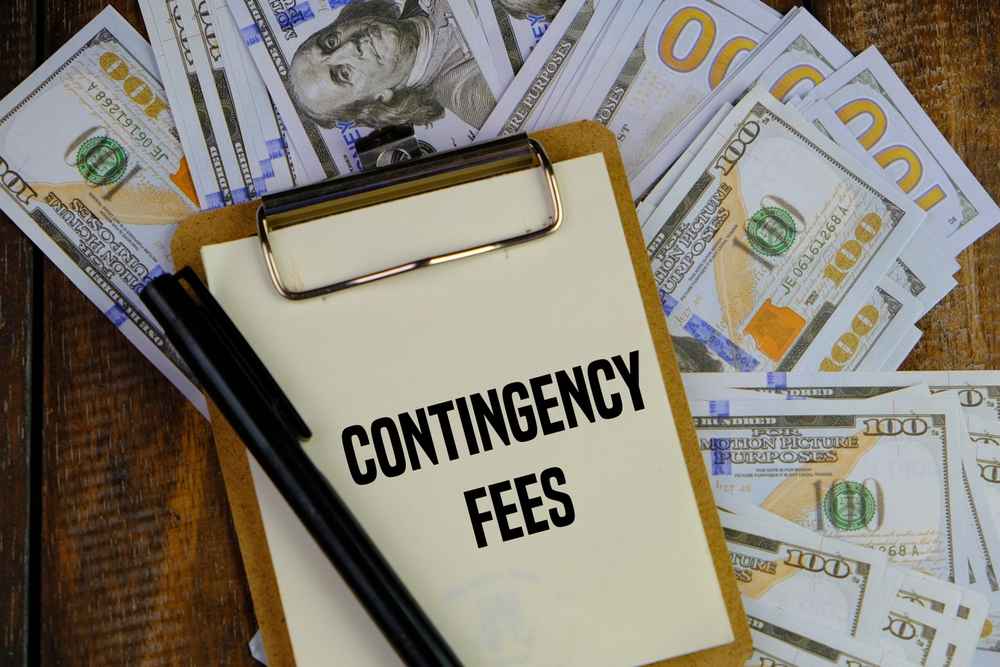
A contingency fee means you do not pay any attorney’s fees upfront. The lawyer’s fee is a percentage of the final settlement or verdict they obtain for you. If you do not recover any money, you do not owe the attorney a fee.
This arrangement allows injured victims to access high-quality legal representation without having to pay out-of-pocket. Discuss the specific percentage during your free consultation.
14. How much is my Chicago car accident case worth?
There is no simple formula to determine a case’s value. It depends on several unique factors, including the severity of your injuries, the total cost of your medical bills and lost wages, the long-term impact on your life (pain and suffering), and the strength of the evidence proving the other party’s fault.
An attorney can evaluate these factors to estimate a fair compensation range, but be wary of any lawyer who promises a specific dollar amount early in the process.
15. Do I have to pay my health insurance back from my settlement?
Often, yes. This is called subrogation. If your health insurance or a government program like Medicare/Medicaid paid for your medical treatment, they have a legal right to be reimbursed from your settlement.
A skilled personal injury lawyer will negotiate with these lienholders to potentially reduce the amount you have to pay back, maximizing the money you get to keep.
Don’t Wait to Ask for Your Car Accident Claim
Some people wait weeks or months before calling a lawyer. Others try to settle on their own first. These delays can hurt your claim. Evidence fades, deadlines pass, and legal options may shrink.
Start early and protect your case. You don’t have to decide everything immediately, but a consultation can clarify your situation.
Walner Law has helped injured people in Chicago for over 75 years. We handle car accident cases with care, urgency, and personal attention. You can call us at (312) 410-8496 for a free consultation. You don’t pay unless we win.


 Skip to content
Skip to content

